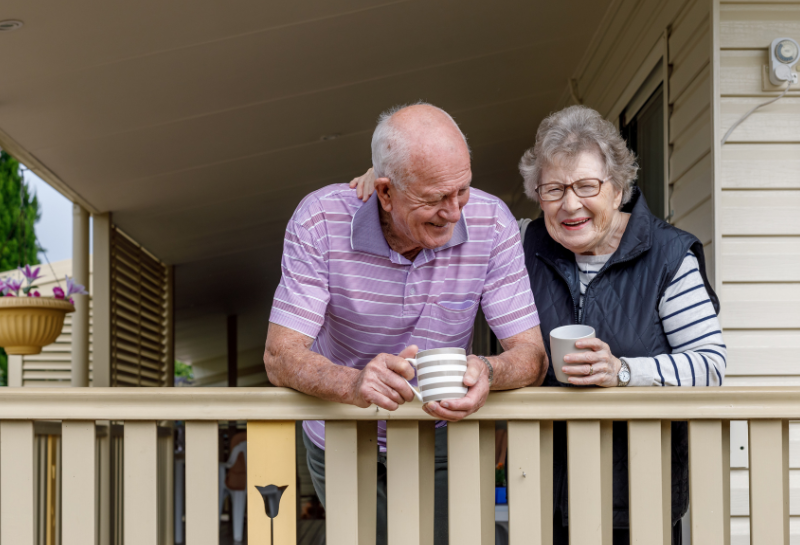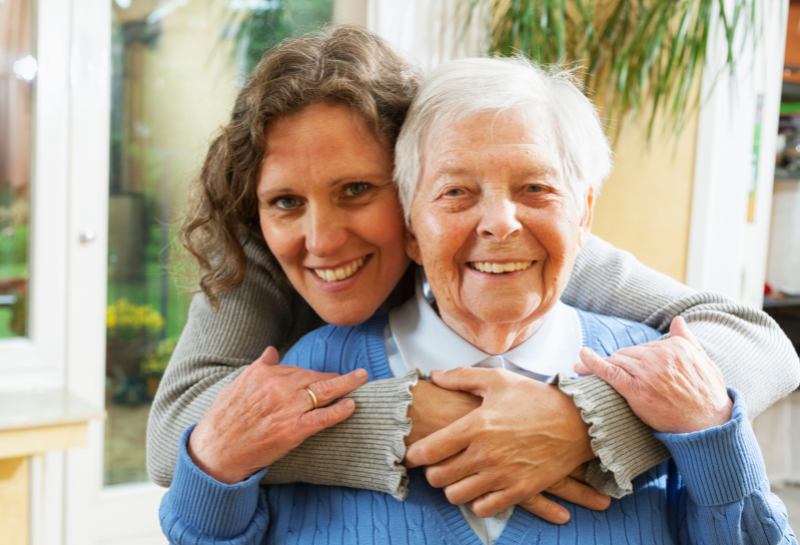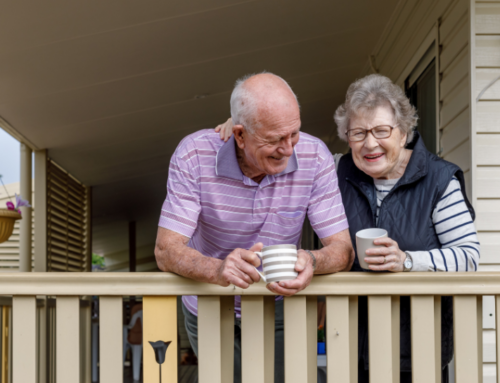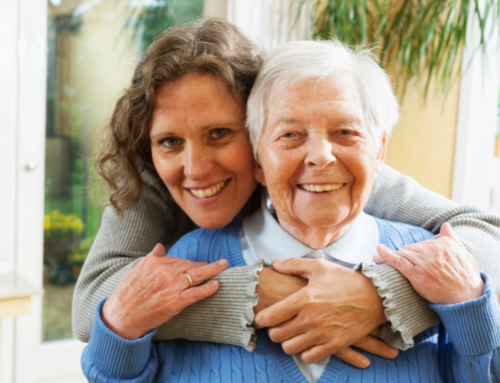5 Mental Health Benefits of Volunteering
You’re probably well aware that volunteering is an excellent thing to do. However, you may not be aware of the health benefits of volunteering.
Volunteering is giving one’s time, energy, and skills for the betterment of others or a cause. It is a human act that helps the recipient and benefits the volunteer.
In addition, volunteering has been linked to various mental health benefits, including improved mood, reduced stress, and increased social connections.
The Cleveland Clinic’s Susan Albers, PsyD, says about volunteering, “It has been shown to decrease stress levels, depression, anxiety and boost your overall health and satisfaction in life.” Helping others activates the reward center in your brain, which releases serotonin, dopamine, and endorphins.
Today’s world has many of us overextended between work, family life, financial strains, caring for elderly loved ones, and more. And with this tension, we tend to see anything else as an added pressure we can’t take on.
On the contrary, research shows that 2-3 hours per week can bring benefits. Most important is volunteering for a cause you care about and only taking the amount of time that is comfortable for you.
Any volunteering is healthy, and there are many ways to give back and organizations that need your service.
Here are five of the many mental health benefits available to you through volunteering include:
- Reduces stress and promotes relaxation
- Promotes finding purpose and improves happiness
- Increases resilience and optimism
- Boosts confidence through engagement with a community
- Enhances feelings of gratitude and empathy
Reduces Stress and Promotes Relaxation
By allowing people to shift their focus from their problems and worries to the needs of others, volunteering can help reduce stress and anxiety by providing a sense of purpose and fulfillment.
From a medical perspective, giving oneself through volunteering and making a positive difference increases the release of dopamine, the “feel good” hormone, which reduces stress and increases relaxed feelings.
When we feel less stressed and more relaxed, we have a more calm and clear mind, which supports concentration, bolsters memory, and aids decision-making. These three attributes help us perform better at work, have more patience at home, and experience feelings of empathy.
Promotes Finding Purpose and Improves Happiness
Volunteering for a meaningful cause and filling us with a sense of purpose can lead to more happiness and longer lives. Finding purpose answers the “why,” and finding this meaning combined with volunteering can link who we are with what we do.
There are many opportunities to volunteer that cover all walks of life. Finding a cause that enables us to give to others and speaks to our passion improves happiness.
Tracy Bower, Ph.D., from Forbes (Mar. 19, 2023) writes that “happiness matters not only because it makes us feel good, but also because it contributes to greater physical and mental health. In addition, it is correlated with greater satisfaction in life.”
Finding purpose and contributing don’t have to be a big deal in the scope of global issues. Volunteering and supporting a cause in our community, whether helping children, older adults, animals, or any other opportunities available, can provide us with happiness. As a result, we will eat healthier, be more active, experience better sleep, and enjoy relationships more.
Finding purpose can be a lifelong endeavor, and there’s enough evidence that we can begin seeking our life’s purpose in small and essential ways near our home or office that positively affect the lives of others.
Increases Resilience and Optimism
Volunteering can develop resilience by being a coping strategy to deal with challenges in life, such as depression, chronic pain, and loneliness. One of the most effective ways to bounce back from hardship is to help others.
This resilience and the optimism that comes with it is sometimes called “The Helper’s High.”
Allan Luks, former executive director of Big Brother/Big Sisters of New York City, has documented the benefits of creating this high. Some of his findings include, but aren’t limited to:
- 89% of volunteers reported an improved sense of well-being
- 73% of volunteers reported lower stress levels
- Diminished physical pain
- Increased feeling of joy, energy, and connection with others
- Heightened sense of self-worth, greater happiness, and optimism.
In our lives filled with work, family, hardships, and unexpected challenges, our ability to adjust to or recover from life’s surprises makes the difference between moving forward and living the life we want and feeling trapped.
Volunteering in our community increases our resilience and optimism. Hence, we stay mentally tough and can continue to care for our family, perform well at our job, and plan for the future we want.
Boosts Confidence Through Engagement With a Community
Volunteering connects us to others in our community, making it a better place to live, work, and raise a family. It helps us make new friends through a shared passion, expands our network, and boosts our social skills and confidence.
By doing good for others, we experience a feeling of accomplishment which leads to a sense of pride and identity connected to being of service. Hence, our feeling of fulfillment through achievement leads to more confidence, which manifests in a more positive life view and excitement for the future.
Western Connecticut University’s Community Engagement page expands the confidence gained through community engagement to other vital areas of life. With more confidence, for example, we can:
Advance our career by getting experience and meeting people in a field of interest. In addition, volunteering allows us to learn new skills that we can bring to our employment with a new level of confidence. This newfound confidence can help us branch out and apply for a position in a new department, a new role, and even a promotion.
Try out a possible new career without making a long-term commitment to this new field without learning more about it. Instead, we can volunteer for organizations that support people in need as a way to learn more about the industry and how we could make it a career.
Ultimately, volunteering in our community brings people together from different industries and backgrounds to unite around a common goal. We can gain new friends who share our passions and joy by spending just a few hours a week supporting a cause, leading to a more significant social network and confidence.
Enhances Feelings of Gratitude and Empathy
Empathy is our ability to see another person’s humanity and relate to their struggles in life.
Empathy brings some to volunteerism, and volunteerism always amplifies compassion for those who participate. When providing services to people who need it, we get a glimpse of their life, what they deal with daily, the kind of help they need, and from many, their endless appreciation for the support given.
With increased feelings of gratitude and empathy, we experience better mental health.
According to The Mayo Clinic, feeling thankful can improve our sleep and mood and boost our immune systems. In addition, it can decrease depression, anxiety, and difficulties with chronic pain.
Our behavior changes our biology. For example, when we live showing empathy and expressing gratitude, oxytocin, the hormone that helps connect people, the “love hormone,” is released.
This hormone is usually linked to warm and fuzzy feelings that, in some research, show a lowering of stress and anxiety, and because of its ability to regulate emotional responses helps us be more trusting, remember positive memories, and engage in positive communication. All of these responses do much to make us happier, healthier, and more willing to connect with others.
And our willingness to connect with others continues the cycle of service and feeling grateful and optimistic with a side of resilience and confidence.
A Final Thought on Volunteering and Its Mental Health Benefits
Volunteering is the contribution of time, effort, and talent toward a cause where the volunteer receives no financial gain.
The idea of volunteering to promote mental health benefits isn’t new. It’s been researched for decades. However, as people have become more displaced, are working longer hours for less, and face unprecedented violence, the positive mental health outcomes caused by volunteering are a viable way to take care of ourselves.
There are many places and ways to volunteer. At DSCC, we are committed to the safety and well-being of seniors at home, also called “aging in place.”
While aging in place is a situation many want, many have no choice. They can’t afford to go into community living and have no family nearby. So we care for them and their health by ensuring they have food to eat, friendly visits to fight isolation and loneliness, food for their beloved pet, minor home repairs, and more.
“The number of Americans ages 65 and older will more than double over the next 40 years, reaching 80 million in 2040. In addition, the number of adults ages 85 and older, who most often need help with basic personal care, will nearly quadruple between 2000 and 2040.” This trend will continue and grow, and our older adults will need help.
If you need a place to give of yourself in your community, to show your kindness and empathy, and want to feel gratitude and optimism about your future, reach out to us and see how DSCC can help you or your company fulfill your volunteering needs.
More Articles That Might Interest You
Aging in Crisis: The Challenges Seniors Face Staying at Home Without Help
Aging in Crisis: The Challenges Seniors Face Staying at Home Without Help As seniors face the desire [...]
This Giving Tuesday, Give with Purpose: Support Aging-in-Place Non-Profits
This Giving Tuesday, Give with Purpose: Support Aging-in-Place Non-Profits As purpose-driven corporate giving becomes a strategic priority, companies [...]
Honoring Family Caregivers: A Lifeline of Support in November and Beyond
Honoring Family Caregivers: A Lifeline of Support in November and Beyond November is National Family Caregivers Month, [...]










